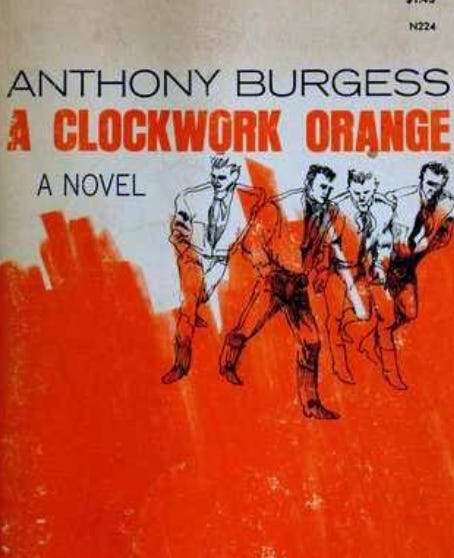"My Dead Friends" by Marie Howe, from What the Living Do. © W.W. Norton & Company, 1998.
ORIGINAL TEXT AND AUDIO - 2012
It was on this date in 1570 Queen Elizabeth I was officially excommunicated from the Roman Catholic Church and declared a heretic, whereupon The English Parliament declared it treason to call the queen a heretic or imply that she was not the rightful monarch. It put English Catholics in a bind: They had to choose between renouncing their faith or facing crippling fines for committing treason.
A decade earlier, the English parliament had passed a law that affirmed the Anglican Church's independence from the Roman Catholic Church. Some Catholic European monarchs had wanted to overthrow Elizabeth, but the pope wasn't particularly eager to, since she had a record of tolerating Catholics' worshipping in private. When Catholic rebellions broke out in northern England and in Ireland, the English government began persecuting Catholics. The pope was forced to excommunicate Elizabeth for ordering this persecution, so the English government started rounding up Jesuit priests and killing them, on the grounds that they were conspiring against England with Spain.
It's the birthday of English novelist, critic, and composer Anthony Burgess, born John Burgess Wilson in Manchester (1917). He was diagnosed with an inoperable brain tumor in the late 1950s and given a year to live. He wrote at a furious pace and produced five novels during that year. At the end of it, he didn't die; in fact, he lived for 30-plus more years, and produced 30 more books, including the one he's most famous for, A Clockwork Orange (1962). Eventually, lung cancer claimed him in 1993.
He once said, "The ideal reader of my novels is a lapsed Catholic and a failed musician, short-sighted, color-blind, auditorily biased, who has read the books that I have read."
On this date in 1919, Oregon became the first state to levy a gasoline tax. The state highway commission had launched a "Get Oregon Out of the Mud!" campaign to build better highways, but the problem was that only the people who drove horseless carriages really needed the paved roads. A Republican state legislator named Loyal Graham hit upon a way to make the people who used the roads foot the bill: a gas tax amounting to a penny a gallon (about 12 cents in today's money). Within 10 years, all 48 states and the District of Columbia were levying gasoline taxes.
It's the birthday of the man Jack Lemmon once called "one of the greatest writers of comedy to have graced the arts in this century": Larry Gelbart, born in Chicago (1928). He wrote for Broadway, movies, and many television shows, but he's best remembered as a writer of the long-running and beloved series M*A*S*H, A Funny Thing Happened on the Way to the Forum (1962), and box office successes Oh, God! (1977) and Tootsie (1982).
Today is the birthday of Frank Chin, born in Berkeley, California (1940), author of The Chickencoop Chinaman (1972), in which he wrote: "I am the natural born ragmouth speaking the motherless bloody tongue. No real language of my own to make sense with, so out comes everybody else's trash that don't conceive. ... I am a Chinaman! A miracle synthetic! Drip dry and machine washable."
It's the birthday of former Beatle George Harrison, born in Liverpool, England, in 1943. He was the youngest of Harold and Louise Harrison's four children, and the youngest of the four Beatles as well. He joined the band when he was only 14, and there was a tendency ever after for his bandmates to treat him like a tag-along kid brother. He was often crowded out of the limelight by John Lennon and Paul McCartney, and he was only granted two tracks on every album. When the band split in 1970, he finally recorded and released several of the songs from this backlog; he had enough material for a triple album, 1970's All Things Must Pass.
His memoir, I Me Mine (also the title of a Beatles' song he wrote), was published in 1980, and is dedicated "to gardeners everywhere." He died of cancer in 2001, and former bandmate McCartney said of him: "He was a lovely guy, and a very brave man and had a wonderful sense of humor. He is really just my baby brother."
Be well, do good work, and keep in touch.®
PRE-ORDER - THAT TIME OF YEAR SOFTCOVER (updated)
From the author:
I sat down and looked at my memoir THAT TIME OF YEAR when it came out and was put off by the sadness, the opening chapter about how much I missed doing “A Prairie Home Companion,” so I sat down to fix it. That’s why a writer shouldn’t read his own work. But I did and so I sat down to cheer it up a little and wrote a new first paragraph.






the link goes to yesterday’s full text and audio
QEI was excommunicated in 1570. ... "When Catholic rebellions broke out in northern England and in Ireland, the English government began persecuting Catholics." "[T]he English government started rounding up Jesuit priests and killing them, on the grounds that they were conspiring against England with Spain." Disappointed in this section. A Jesuit mission to England was launched from Rome in April 1580, ten years after the excommunication. Until then, the government wasn't exactly "rounding them up and killing them." Until Campion arrived, only two Jesuits had been killed. Both were named Jesuits just before their executions, so had not been trained as Jesuits. One was opening critical of the queen--not smart. The other was unlucky enough to be with someone the government was really looking for. During the 45 years of ER's reign, 11 Jesuits were executed.